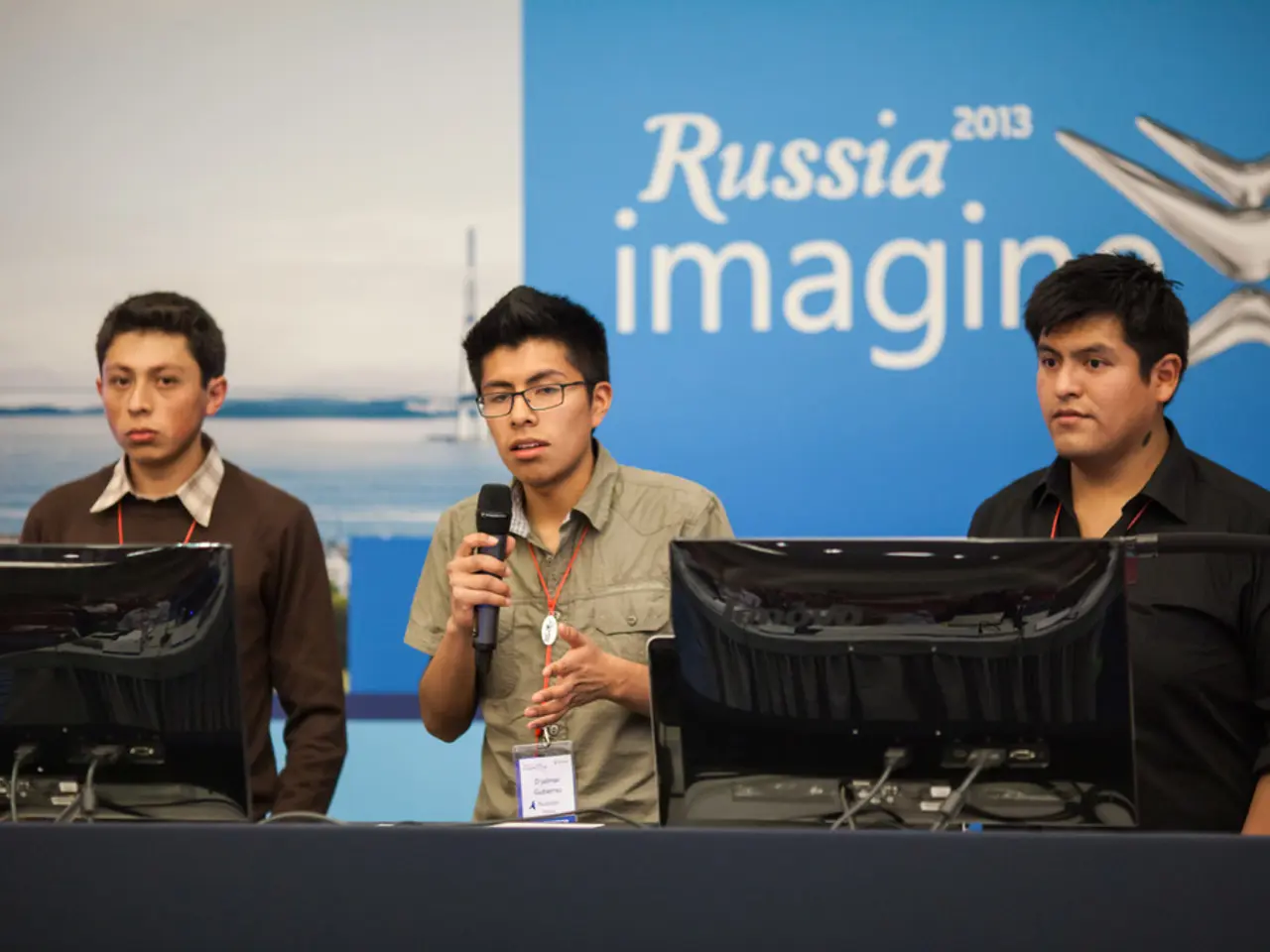The unspoken expenses associated with OpenAI's groundbreaking AI technology
The technology industry is currently witnessing an unprecedented talent war between OpenAI and Meta, with both companies vying for the world's top AI researchers. This fierce competition, led by Meta CEO Mark Zuckerberg, has intensified significantly, as Meta offers staggering compensation packages to attract elite talent.
Meta's offerings include compensation packages topping $100 million in the first year and reaching up to $300 million over four years, creating a market for AI researchers with salaries rivalling those of top athletes. This aggressive poaching has already resulted in Meta recruiting at least eight senior OpenAI researchers, including leaders from OpenAI's perception, advanced reasoning, and GPT-4 teams.
In response, OpenAI CEO Sam Altman has criticised Meta's approach as "crazy," warning of the deep cultural problems that might arise from such high monetary incentives. Instead, OpenAI is betting on building AI talent from the ground up, cultivating loyalty through a mission-driven culture rather than matching Meta’s exorbitant pay.
This financial war has several implications for OpenAI and its investors. There is increased pressure to offer competitive compensation to retain talent, which could impact OpenAI’s operational expenses and margins. The risk of key researchers being poached by Meta potentially slows OpenAI’s innovation pace or requires investment in training new talent.
Long-term value depends on OpenAI’s ability to balance talent retention with its mission-oriented culture, a competitive advantage that Altman believes will ultimately be crucial. Meta’s massive spending on talent may raise the stakes in the AI race, incentivising faster progress and potentially higher returns for investors, but also increasing market volatility and cost inflation in AI development.
The financial strategy of OpenAI, with billions spent on talent and computing power, puts the company in a precarious position. The stock-based compensation accounts for 119% of OpenAI's total revenue, putting immense pressure on the company to dramatically increase revenue and find a path to profitability. The $4.4 billion in stock-based compensation is more than OpenAI's entire revenue for the year, creating a countdown timer for the company to deliver a massive financial return to justify the cost.
This battle over talent is shaping the future growth trajectory and valuation prospects of OpenAI. The high stock-based compensation creates a major risk by diluting the value of shares held by investors. The talent war, fueled by capitalist competition, makes it harder to prioritise safety and ethics when burning billions. OpenAI's mission is to build AGI that benefits all of humanity, but the costly talent war puts pressure on this founding ideal.
As the race for AI dominance continues, it remains to be seen which strategy will prove most effective. One thing is certain, however: the AI industry is experiencing a period of unprecedented financial dynamics, with both companies leveraging immense resources to rapidly build their AI capabilities.
- The tech industry's current escalation, spearheaded by Meta CEO Mark Zuckerberg, is a fierce competition between OpenAI and Meta for top artificial-intelligence (AI) researchers, a war that has intensified significantly.
- Meta's strategy to attract elite AI talent includes compensation packages worth over $100 million in the first year, extending up to $300 million over four years, creating a market for AI researchers with salaries rivalling those of top athletes.
- In response, OpenAI is focusing on cultivating loyalty through a mission-driven culture, aiming to avoid the deep cultural problems that might arise from high monetary incentives, as warned by OpenAI CEO Sam Altman.
- This financial war between OpenAI and Meta has implications for OpenAI and its investors, as there is increased pressure to offer competitive compensation to retain talent, which could impact OpenAI’s operational expenses and margins.
- OpenAI's financial strategy, investing billions in talent and computing power, has put the company in a precarious position, as the stock-based compensation accounts for 119% of OpenAI's total revenue, creating a major risk by diluting the value of shares held by investors.




